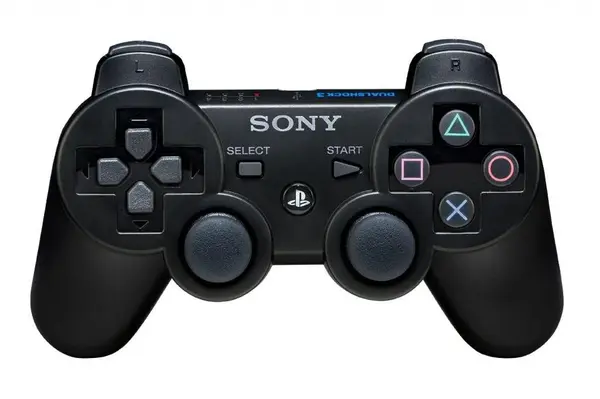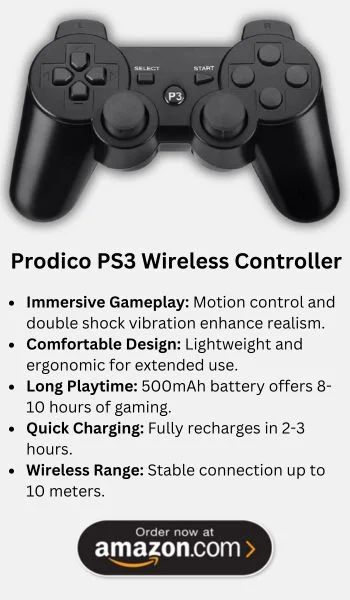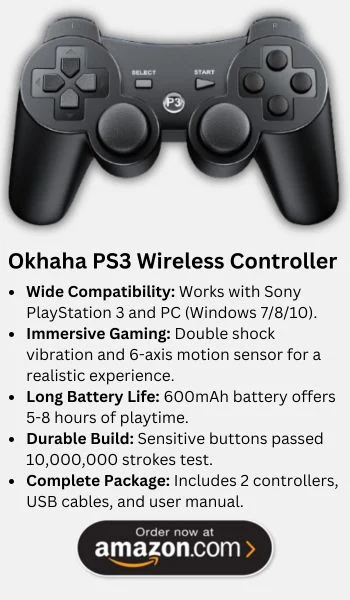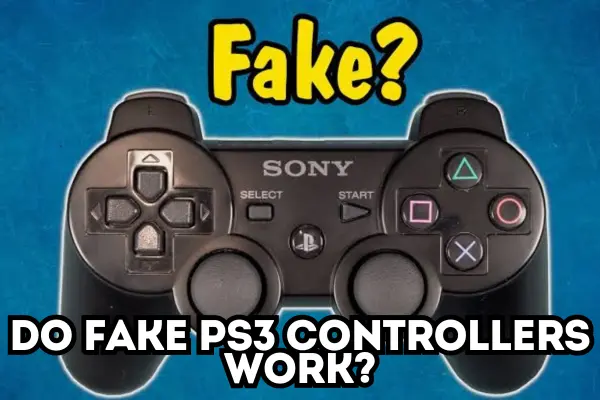In the gaming world, the controller is your lifeline, connecting you to countless adventures and challenges. For PlayStation 3 (PS3) gamers, the official DualShock controller has long been the trusted companion. But did you know you can also use a PS4 controller on your PS3 console? This modern twist offers a fresh gaming experience for fans of the PS4 design.
At the same time, many gamers wonder about fake or third-party controllers. Do fake PS3 controllers really work? This question often arises, especially when considering the price difference.
In this article, we’ll explore everything you need to know about fake PS3 controllers, from their functionality to user experiences, helping you make an informed choice.
Types of PS3 Controllers

In the market, you’ll find two main categories of controllers for the PS3:
Original Controllers: These are the official Sony DualShock 3 controllers, known for their reliability and build quality.
Third-Party and Fake Controllers: These controllers are often produced by various manufacturers and can range from high-quality alternatives to poorly made fakes.
While third-party controllers can offer unique features and often come at a lower price, fake controllers are generally considered imitations that may not meet the same standards as originals.
Understanding these types is crucial, as it impacts your gaming experience and overall satisfaction.
The Pros and Cons of Fake PS3 Controllers
Pros of Using Fake PS3 Controllers
Cost-Effectiveness: One of the most appealing aspects of fake controllers is their price. While original controllers can be expensive, fake versions often come at a fraction of the cost, making them accessible for budget-conscious gamers.
Variety of Designs: Fake controllers frequently come in a variety of colors and designs. This can be appealing for gamers looking to personalize their setup or match their gaming environment.
Unique Features: Some fake controllers may offer features not found in the original, such as different button layouts or additional functionality.
Cons of Using Fake PS3 Controllers
Quality Concerns: Many fake controllers are made from inferior materials, which can lead to issues such as unresponsive buttons or poor durability.
Compatibility Issues: Fake controllers may not always work with all games or updates. This can lead to frustration if you find that your controller doesn’t perform well with specific titles.
Shorter Lifespan: Often, the build quality of fake controllers means they don’t last as long as original ones. Gamers may find themselves needing to replace them more frequently.
Potential Safety Risks: Some poorly made controllers can pose risks, including overheating or electrical issues, particularly with wired models.
Considering these pros and cons helps you weigh whether the lower price of fake controllers is worth the potential downsides.
Recommended Third Party PS3 Controllers
There are some third-party PS3 controllers out there that are not only budget-friendly but also work really well.


Fake PS3 Controllers Performance
Compatibility with PS3 Console
Fake PS3 controllers can connect to the console in two primary ways: wired and wireless. Wired controllers plug directly into the console via USB, while wireless controllers utilize Bluetooth technology. The latter is how original DualShock controllers operate, allowing for a more flexible gaming experience.
Performance Comparison
When it comes to performance, there are several key areas to consider:
Latency: Many gamers report that fake controllers suffer from input lag, meaning there’s a delay between pressing a button and the action occurring in the game. This can be particularly detrimental in fast-paced gaming scenarios.
Button Responsiveness: Genuine PS3 controllers have a reputation for their responsive buttons. Fake versions often fall short, leading to frustration during gameplay.
Durability: While original controllers are designed to withstand years of use, fake ones may break or wear down more quickly. Users often report issues such as joystick drift or unresponsive buttons after a short period of use.
Expert Opinions
Gaming experts generally advise caution when considering fake controllers. While they can be tempting due to their low prices, the risks often outweigh the benefits.
In a review from TechRadar, a gaming expert noted, “While some third-party controllers offer solid performance, fake controllers rarely hold up to the rigorous demands of serious gaming.”
Conclusion
As we’ve explored, the question of “Do fake PS3 controllers work or not?” is multifaceted, revealing a mix of benefits and drawbacks that can significantly influence your gaming experience.
While fake controllers can be enticing due to their lower price and unique designs, they often come with performance and quality issues that can frustrate even casual gamers.
When deciding whether to purchase a fake controller, consider your gaming habits. If you’re a casual player who enjoys gaming occasionally, a fake controller might serve your needs adequately, offering a fun and cost-effective alternative.
However, for serious gamers who rely on precision and durability, investing in an original DualShock 3 or a reputable third-party alternative is likely a wiser choice.
Frequently Asked Questions
Do fake PS3 controllers work with all games?
Most fake controllers work with a majority of games, but some may experience compatibility issues with specific titles or online features.
How can I tell if a PS3 controller is fake?
Check for indicators like poor build quality, lack of official branding, and overly low prices compared to original controllers.
Are fake controllers safe to use?
While most fake controllers are safe, poorly made models can pose risks such as overheating. Always buy from reputable sellers to minimize this risk.
Where can I buy a reliable fake PS3 controller?
If you choose to go the fake route, look for well-reviewed brands or stores. Online marketplaces often have customer feedback that can guide your choice.
What should I do if my fake controller doesn’t work?
First, check the connection (wired or Bluetooth). If problems persist, consult the manufacturer’s guidelines or consider contacting customer service.

